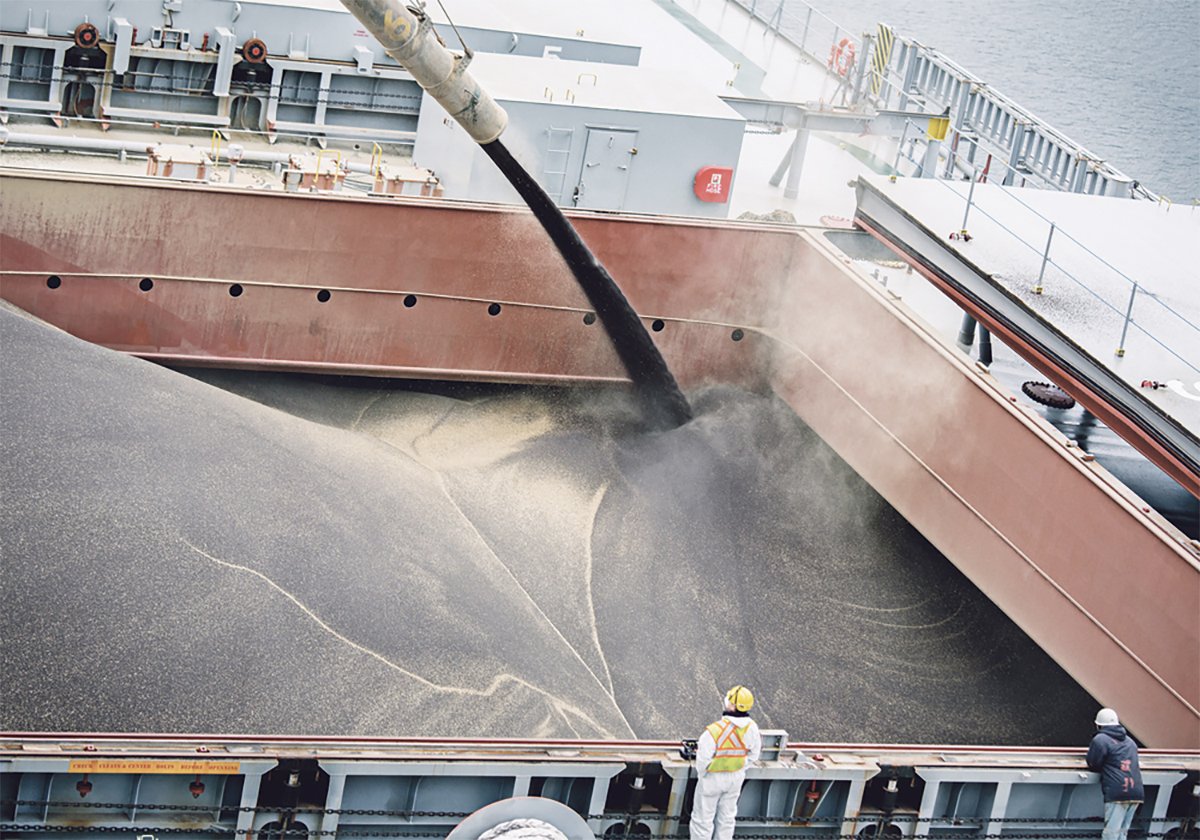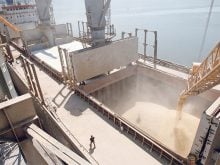Fears that the U.S. would implement a tariff on feeder cattle ignited concerns that the market would drop sharply
For the week ending Jan. 25, western Canadian feeder markets were quite variable, trading $5-$10 on either side of unchanged compared to seven days earlier.
Prices for calves weighing less than 600 pounds were variable as adverse weather resulted in risk discount in certain regions.
Producer selling increased over the past couple of weeks, and sales volumes were larger than normal at many auction barns.
Read Also

Exports off to a slow start after last year’s torrid pace
Canadian grain, oilseed and pulse exports are off to a slow start, but there are some bright spots, according to the Canadian Grain Commission’s most recent weekly export data report.
The fear that U.S. president Donald Trump would implement a tariff on feeder cattle ignited fears that that market would drop sharply. Larger volumes were met with firm demand, which limited slippage.
In central Alberta, larger frame lighter flesh mixed steers averaging 901 lb. with full processing records sold for $370. Near Calgary, Simmental mixed larger frame heifers evaluated at 900 lb. with full health records on light grain and silage diet were valued at $320 f.o.b. feedlot.
South of Edmonton, tan mixed steers weighing slightly more than 800 lb. were last bid at $402.
In southwestern Manitoba, larger-wide frame black steers on the card at 780 lb. silenced the crowd at $422, and a smaller package of red heifers weighing 770 lb. notched the board at $360.
In central Alberta, Charolais weaned steers with a mean weight of 692 lb. traded for $454, and Angus-based heifers averaging 700 lb. were last bid at $392.
Southeast of Saskatoon, higher quality tan steers weighing slightly more than 600 lb. touched $520. Northwest of Winnipeg, black mixed heifers averaging 624 lb. dropped the gavel at $388, and red steers weighing 620 lb. set the bar at $445.
At the Rimbey, Alta., sale, Simmental-Angus cross short-weaned calves on barley and silage diet with full processing records averaging 586 lb. sold for $488. Near Lethbridge, a handful of red steers weighing slightly more than 500 lb. sold for $552.
In southwestern Manitoba, black steers weighing 514 lb. reached up to $557, and a smaller string of black heifers with a mean weight of 463 lb. had the crowd gasping at $508.
Statistics Canada will release its Dec. 31 Grain Stocks Report on Feb. 7.
Canadian on-farm barley stocks as of Dec. 31 are expected to come in at 4.5 million tonnes, down from the Dec. 31, 2023, on-farm number of five million tonnes.
Canadian barley stocks are expected to drop to historical low levels at the end of the 2024-25 crop year. There is significant upside in the barley market, which may be tempering the upside in the 800 lb. plus feeder category.
Despite the higher calf prices, there has been limited heifer retention in Western Canada for herd expansion over the past few years. During the summer of 2025, we’re expecting cow-calf producers to hold back 50,000 to 60,000 heifers for expansion, thereby lowering the feeder cattle supply in Western Canada.
The yearling crop harvested in August and September has been shrinking each year.
Feedlot operators are securing ownership of lighter calves and placing them in custom backgrounding lots. This will ensure available yearling supply in August and September and may be contributing to the wide variation in prices for lighter calves.
The live and feeder cattle futures are incorporating a risk premium due to the uncertainty in tariffs on Canadian feeder cattle, fed cattle and beef. This comes on the heels of the U.S. border closure to Mexican feeder cattle.
Jerry Klassen is president and founder of Resilient Capital, specializing in proprietary commodity futures trading and market analysis. He can be reached at 204-504-8339 or via his website at resilcapital.com.

















